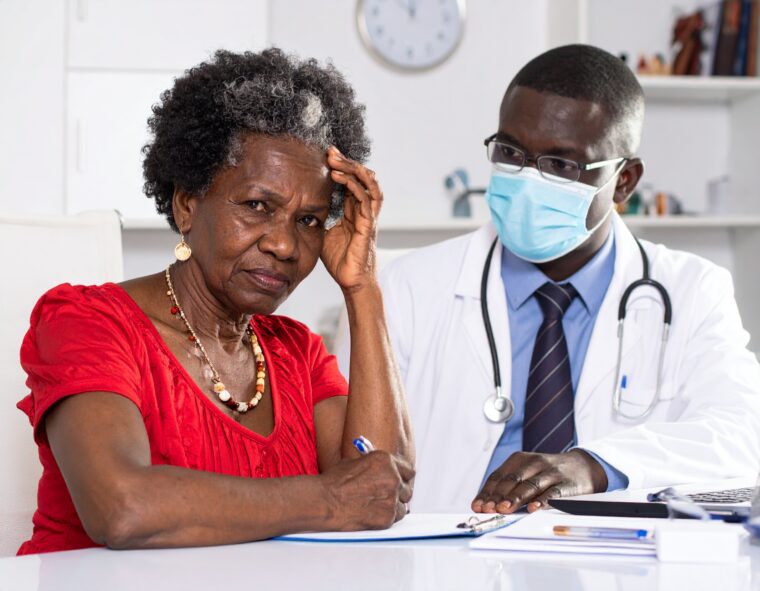Written by Dr. Aisha Harris- with other Images © by L.M. Land for the Flint Courier News, AI.
Have you ever walked out of a doctor’s office and not understood what was just said to you
moments before? Or thought that your doctor was talking a foreign language when explaining your medical problems and the treatment recommendations? It is not just you, this happens often, which is why it is important to shine a light on health literacy.
Health literacy is the ability to understand health information. According to the National Library of Medicine, “nearly 9 out of 10 adults struggle with health literacy. Even people with high literacy skills may have low health literacy skills in certain situations.”

No one is their best self when they are sick, which sometimes makes it difficult to understand what is going on during a medical evaluation or appointment.
But even when acute sickness is not influencing our understanding and comprehension, health literacy plays a role in how someone is able to or unable to navigate the health system and advocate for themselves.
October is Health Literacy Month, and highlighting the importance of health literacy and improving it is essential for creating better health experiences in the health system and in overall improving health outcomes.

There are multiple types of health literacy, and some main ones include personal, organizational and digital. Personal health literacy is related to someone’s ability to individually understand. Organizational health literacy is related to an organization’s ability to provide equitable opportunities for individuals to find, understand and use information to make informed decisions. Digital health literacy, according to the World Health Organization, is “the ability to seek, find, understand and appraise health information from electronic sources and apply the knowledge gained to addressing or solving a health problem”.
Health literacy involves reading health information, calculating medication doses, following directions and many more skills, in order to have a better grasp and understanding of health recommendations, needs and information.
Low health literacy skills can cause decreased health outcomes, medication errors and concerns regarding chronic disease management. Good health literacy helps save lives and improve quality of life. High health literacy helps individuals make informed and good decisions to help manage medical problems, decrease complications and increase life expectancy.
It is helpful to regularly ask questions to help improve your understanding and recommendations for your health problems. Screenings and prevention can be better maintained when good health literacy skills are established. Everyone deserves an opportunity to be informed about their health so they can make the best decision for them. Working on your health literacy skills will be beneficial for acute and chronic medical problems by helping to improve health outcomes.

So, ask yourself, what is my health literacy level? Can I do better? What makes it worse?
Written by Dr Aisha Harris, MD. Dr. Harris is a Flint native and board-certified family medicine doctor at Harris Family Health in Flint, Michigan. Harris Family Health is a membership-based clinic that provides personalized and full primary care to adults and children. Learn more about Harris Family Health by visiting www.harrisfamilyhealth.com.
Feel free to submit health questions to Dr. Harris via theflintcouriernews@gmail.com.


